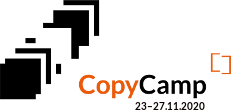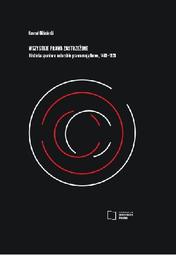CopyCamp 2017: speakers
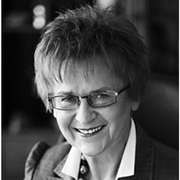 Alicja Adamczak – President of the Patent Office of the Republic of Poland, Doctor of Laws. Member of the Administrative Council and the Budget and Finance Committee of the European Patent Organisation, member of the Administrative Council of the Visegrad Patent Institute. Initiator i.a. of series of symposia „Industrial property in innovative economy” in Cracow, international conferences „Innovation and creativity of women” in Warsaw, and competitions to promote the protection of intellectual property. Initiator of Polish celebrations of the World Intellectual Property Day. Instructor of the Polish Scouting and Guiding Association.
Alicja Adamczak – President of the Patent Office of the Republic of Poland, Doctor of Laws. Member of the Administrative Council and the Budget and Finance Committee of the European Patent Organisation, member of the Administrative Council of the Visegrad Patent Institute. Initiator i.a. of series of symposia „Industrial property in innovative economy” in Cracow, international conferences „Innovation and creativity of women” in Warsaw, and competitions to promote the protection of intellectual property. Initiator of Polish celebrations of the World Intellectual Property Day. Instructor of the Polish Scouting and Guiding Association.
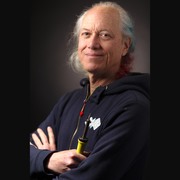 Mitch Altman – hacker and inventor, known for inventing TV-B-Gone, a keychain that turns off TVs in public places. He co-founded a successful Silicon Valley startup and did pioneering work in Virtual Reality. He is an author and teacher, and goes around the world giving talks and workshops. Mitch promotes hackerspaces, open source hardware, and mentors others wherever he goes. He is a co-founder of Noisebridge hackerspace in San Francisco, and is President and CEO of Cornfield Electronics.
Mitch Altman – hacker and inventor, known for inventing TV-B-Gone, a keychain that turns off TVs in public places. He co-founded a successful Silicon Valley startup and did pioneering work in Virtual Reality. He is an author and teacher, and goes around the world giving talks and workshops. Mitch promotes hackerspaces, open source hardware, and mentors others wherever he goes. He is a co-founder of Noisebridge hackerspace in San Francisco, and is President and CEO of Cornfield Electronics.
 Martin Appelt – Senior Researcher and curator of the arctic collections at the National Museum of Denmark. During the last 25 years Martin has been researching the complexities of the prehistoric societies in Greenland, Arctic Canada, and Alaska. While he has disseminated much of his work in standard academic formats he is becoming ever more interested in exploring other formats of (digital) dissemination and is part of an ongoing digital collaboration with heritage communities in Arctic Canada.
Martin Appelt – Senior Researcher and curator of the arctic collections at the National Museum of Denmark. During the last 25 years Martin has been researching the complexities of the prehistoric societies in Greenland, Arctic Canada, and Alaska. While he has disseminated much of his work in standard academic formats he is becoming ever more interested in exploring other formats of (digital) dissemination and is part of an ongoing digital collaboration with heritage communities in Arctic Canada.
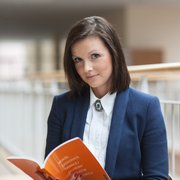 Iga Bałos – earned a Ph.D. degree in law in 2015 and her thesis concerned arbitration in patent disputes. She gave talk on patents on computer programs during 32 Chaos Communication Congress (Hamburg, 2015) and had a chance to discuss the issue of hacking autonomous vehicles from IP point of view during 1st OverDirveConference (Girona, 2016). She takes part in public discussion on software patents since 2009. Her opinion was published on the official website of European Patent Office.
Iga Bałos – earned a Ph.D. degree in law in 2015 and her thesis concerned arbitration in patent disputes. She gave talk on patents on computer programs during 32 Chaos Communication Congress (Hamburg, 2015) and had a chance to discuss the issue of hacking autonomous vehicles from IP point of view during 1st OverDirveConference (Girona, 2016). She takes part in public discussion on software patents since 2009. Her opinion was published on the official website of European Patent Office.
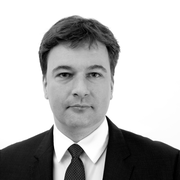 Mirko Boehm – Free Software and Open Source advocate. KDE Desktop contributor since 1997 (including several years on the KDE e.V. Board). Visiting lecturer and researcher at the Technical University of Berlin, a fellowship representative in the FSFE general assembly and a Qt-certified specialist and trainer. At the Open Invention Network, Mirko is responsible for the Linux system definition. Founder and CEO of Endocode, an employee-owned company providing professional IT services with a focus on Open Source technologies.
Mirko Boehm – Free Software and Open Source advocate. KDE Desktop contributor since 1997 (including several years on the KDE e.V. Board). Visiting lecturer and researcher at the Technical University of Berlin, a fellowship representative in the FSFE general assembly and a Qt-certified specialist and trainer. At the Open Invention Network, Mirko is responsible for the Linux system definition. Founder and CEO of Endocode, an employee-owned company providing professional IT services with a focus on Open Source technologies.
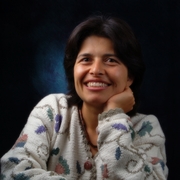 Carolina Botero – CEO of the Colombian civil society digital rights organization Karisma Foundation. She is a researcher, lawyer, lecturer, and writer on topics related to law and technology. Carolina works in the defence of human rights in technology environments.Carolina holds a master’s degree on international law and cooperation (VUB – Belgium), and a master’s degree in Business and Contracting Law (2006, UAB – Spain). She writes a weekly OpEd for the Colombian newspaper El Espectador (photo: Mario Carvajal).
Carolina Botero – CEO of the Colombian civil society digital rights organization Karisma Foundation. She is a researcher, lawyer, lecturer, and writer on topics related to law and technology. Carolina works in the defence of human rights in technology environments.Carolina holds a master’s degree on international law and cooperation (VUB – Belgium), and a master’s degree in Business and Contracting Law (2006, UAB – Spain). She writes a weekly OpEd for the Colombian newspaper El Espectador (photo: Mario Carvajal).
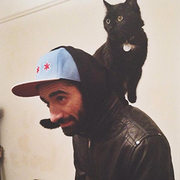 Nick Briz – new_media artist, educator (SAIC, Marwen, www), organizer (GLI.TC/H, NO-MEDIA). Lives in Chicago and works on digital literacy + ecology, netizen rights, glitch art, net art, remix. Critically obsessed with Internet. Independent and commercial (Branger_Briz) artist, whose works have been shown internationally (FILE Media Arts Festival, the Images Festival, the Museum of Moving Image, the Tate, Museum of Contemporary Art Chicago). Published in VICE, Rhizome.org, Fast Company, El Mundo, Neural.
Nick Briz – new_media artist, educator (SAIC, Marwen, www), organizer (GLI.TC/H, NO-MEDIA). Lives in Chicago and works on digital literacy + ecology, netizen rights, glitch art, net art, remix. Critically obsessed with Internet. Independent and commercial (Branger_Briz) artist, whose works have been shown internationally (FILE Media Arts Festival, the Images Festival, the Museum of Moving Image, the Tate, Museum of Contemporary Art Chicago). Published in VICE, Rhizome.org, Fast Company, El Mundo, Neural.
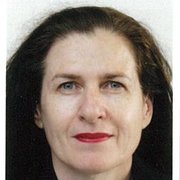
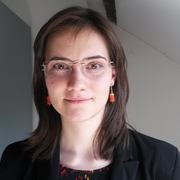 Diana Cocoru – Director for Policy and Research at OpenForum Europe, Diana has closely followed the EU copyright review from the very beginning of the process, back in 2013. She has authored a research paper with policy recommendations for the text and data mining exception, she has coordinated the drafting and publication of an academic paper on the new press publishers’ right and is currently leading an online initiative to limit the unintended impact of the proposed Directive on code sharing platforms.
Diana Cocoru – Director for Policy and Research at OpenForum Europe, Diana has closely followed the EU copyright review from the very beginning of the process, back in 2013. She has authored a research paper with policy recommendations for the text and data mining exception, she has coordinated the drafting and publication of an academic paper on the new press publishers’ right and is currently leading an online initiative to limit the unintended impact of the proposed Directive on code sharing platforms.
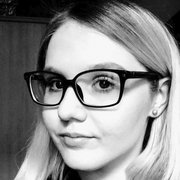 Martyna Czapska – legal counsel and an experienced public speaker. She graduated in law at University of Lodz and completed postgraduate studies in copyright law at University of Warsaw. She specializes in copyright and business law, enjoys spreading legal education in local communities on nationwide conventions. She runs a blog focused on copyright law at www.prawnointelektualny.pl. Recently she created Prawnointelektualny’s YouTube channel. After hours she plays computer games and enjoys good books.
Martyna Czapska – legal counsel and an experienced public speaker. She graduated in law at University of Lodz and completed postgraduate studies in copyright law at University of Warsaw. She specializes in copyright and business law, enjoys spreading legal education in local communities on nationwide conventions. She runs a blog focused on copyright law at www.prawnointelektualny.pl. Recently she created Prawnointelektualny’s YouTube channel. After hours she plays computer games and enjoys good books.
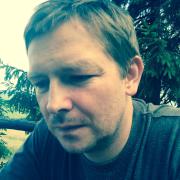 Łukasz Czernicki – innovation trends seeker, IP-freak, intangibles catalyst.
Łukasz Czernicki – innovation trends seeker, IP-freak, intangibles catalyst.
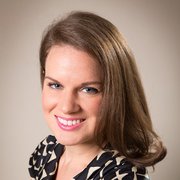 Ariele Elia – Department Coordinator for the newly launched MFA Fashion Design program at the Fashion Institute of Technology. Curator or co-curator of: „Faking It: Originals, Copies, and Counterfeits,” „Fashion and Technology,” „Black Fashion Designers”. Lecturer at Oxford, NYU, Eyebeam, the University of Rhode Island. Author: “The Wardrobe of the Modern Athlete: Activewear in the 1930s” and “Ocean Exploration: Fashion from the Deep.” M.A. in Fashion and Textile: History, Theory, and Museum Practices from FIT. B.A. in Art History from Saint Mary’s College of California.
Ariele Elia – Department Coordinator for the newly launched MFA Fashion Design program at the Fashion Institute of Technology. Curator or co-curator of: „Faking It: Originals, Copies, and Counterfeits,” „Fashion and Technology,” „Black Fashion Designers”. Lecturer at Oxford, NYU, Eyebeam, the University of Rhode Island. Author: “The Wardrobe of the Modern Athlete: Activewear in the 1930s” and “Ocean Exploration: Fashion from the Deep.” M.A. in Fashion and Textile: History, Theory, and Museum Practices from FIT. B.A. in Art History from Saint Mary’s College of California.
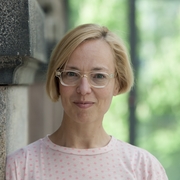 Pernille Feldt – cand.mag. in Comparative literature, University of Copenhagen and MA in Digital Heritage/Museum Studies, Leicester University. After working at the National Gallery, Cph. she recently joined the research project The Past’s Future at the Saxo-Institute at University of Copenhagen as a scientific assistant. The project collaborates with three Danish cultural heritage institutions and examines the concept of education in light of digital transformations.
Pernille Feldt – cand.mag. in Comparative literature, University of Copenhagen and MA in Digital Heritage/Museum Studies, Leicester University. After working at the National Gallery, Cph. she recently joined the research project The Past’s Future at the Saxo-Institute at University of Copenhagen as a scientific assistant. The project collaborates with three Danish cultural heritage institutions and examines the concept of education in light of digital transformations.
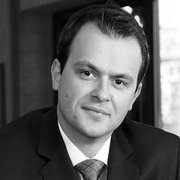 Damian Flisak – Author of numerous scientific and popular publications, including a commentary on the Polish Act on the copyright and the neighbouring rights (one of the authors and scientific editor). Arbitrator at the Internet Domains Court (PIIT). Sworn translator of German language. Lecturer at Kozminski University.
Damian Flisak – Author of numerous scientific and popular publications, including a commentary on the Polish Act on the copyright and the neighbouring rights (one of the authors and scientific editor). Arbitrator at the Internet Domains Court (PIIT). Sworn translator of German language. Lecturer at Kozminski University.
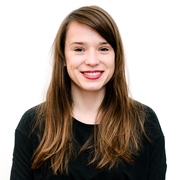 Kiki Ganzemüller – Music Publishing Partnerships Manager in Google since 2015. She looks after publishers, songwriters and collection societies across YouTube and Google Play Music in EMEA. Before Google she worked as Artist Relations Manager at Iceland Airwaves Festival as well as independent Artist Manager and ran her own Publishing Edition at BMG Rights Management.
Kiki Ganzemüller – Music Publishing Partnerships Manager in Google since 2015. She looks after publishers, songwriters and collection societies across YouTube and Google Play Music in EMEA. Before Google she worked as Artist Relations Manager at Iceland Airwaves Festival as well as independent Artist Manager and ran her own Publishing Edition at BMG Rights Management.
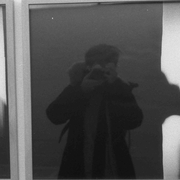 Gloria González Fuster – research professor at the Vrije Universiteit Brussel (VUB)’s Faculty of Law and Criminology. Member of the Law, Science, Technology and Society (LSTS) Research Group, she investigates legal issues related to privacy, personal data protection and security. She studied Law, Journalism, and Modern Languages and Literatures, and worked at the European Commission and the Education, Audiovisual and Culture Executive Agency.
Gloria González Fuster – research professor at the Vrije Universiteit Brussel (VUB)’s Faculty of Law and Criminology. Member of the Law, Science, Technology and Society (LSTS) Research Group, she investigates legal issues related to privacy, personal data protection and security. She studied Law, Journalism, and Modern Languages and Literatures, and worked at the European Commission and the Education, Audiovisual and Culture Executive Agency.
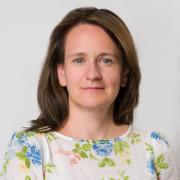 Anikó Grad-Gyenge – associate professor at Károli Gáspár University in Budapest and a copyright advisor at ProArt. Vicepresident of the Hungarian ALAI Group and Hungarian Copyright Forum Association. Chief editor of Infocommunication and Law, member of the Hungarian Copyright Expert Board. Aniko holds degrees in both law and musicology.
Anikó Grad-Gyenge – associate professor at Károli Gáspár University in Budapest and a copyright advisor at ProArt. Vicepresident of the Hungarian ALAI Group and Hungarian Copyright Forum Association. Chief editor of Infocommunication and Law, member of the Hungarian Copyright Expert Board. Aniko holds degrees in both law and musicology.
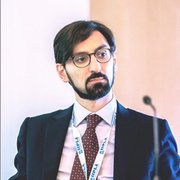 Luca Guidobaldi – lawyer and a Senior Associate at Nctm Studio Legale in Rome. IP LL.M (United States, 2011) his practise area covers copyright and trademarks, media, entertainment and art law. Luca assists and advises in and out-of-court, large and diverse international Client-base – ranging from the youngest start-ups to the biggest “Made in Italy” brands, from solo artists to popular acts and showbiz people. He is a member of IP associations such as INTA, LES and IIPLA and he is also the author of several law-review publications in Italy.
Luca Guidobaldi – lawyer and a Senior Associate at Nctm Studio Legale in Rome. IP LL.M (United States, 2011) his practise area covers copyright and trademarks, media, entertainment and art law. Luca assists and advises in and out-of-court, large and diverse international Client-base – ranging from the youngest start-ups to the biggest “Made in Italy” brands, from solo artists to popular acts and showbiz people. He is a member of IP associations such as INTA, LES and IIPLA and he is also the author of several law-review publications in Italy.
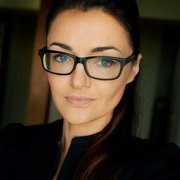 Małgorzata Gurdziel – graduated the Cracow University of Economics and the University of Warsaw. Between 2006-2012 was managing the Association of Theater Authors and the Art of Dialogue Foundation, which run g.e. the Drama Laboratory. Since 2010 vice-director of Tadeusz Lomnicki Theater Na Woli and since 2013 the the Outside Director at the The Dramatic Theatre of the Capital City of Warsaw. Founder of non-governmental organizations implementing the production and organization of pro-social projects.
Małgorzata Gurdziel – graduated the Cracow University of Economics and the University of Warsaw. Between 2006-2012 was managing the Association of Theater Authors and the Art of Dialogue Foundation, which run g.e. the Drama Laboratory. Since 2010 vice-director of Tadeusz Lomnicki Theater Na Woli and since 2013 the the Outside Director at the The Dramatic Theatre of the Capital City of Warsaw. Founder of non-governmental organizations implementing the production and organization of pro-social projects.
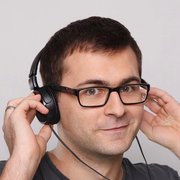 Wojciech Hardy – economist at the Institute for Structural Research (IBS) and a PhD student at the University of Warsaw. He has been researching unauthorised file-sharing for several years, and has published some of his studies in reviewed journals. He is currently researching the persistence of switching to file-sharing resulting from one-time incentives to do so. He’s interested in music and folk tales across the world, but also enjoys reading sci-fi literature. Above all, he spends time being a dad.
Wojciech Hardy – economist at the Institute for Structural Research (IBS) and a PhD student at the University of Warsaw. He has been researching unauthorised file-sharing for several years, and has published some of his studies in reviewed journals. He is currently researching the persistence of switching to file-sharing resulting from one-time incentives to do so. He’s interested in music and folk tales across the world, but also enjoys reading sci-fi literature. Above all, he spends time being a dad.
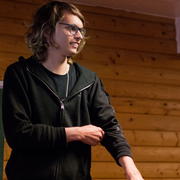 Bernhard Hayden – net activist, developer and youth organizer. Since 2014 he’s on the board of the digital rights youth federation »Young Pirates of Europe«, working for a more equitable and fair distribution of the benefits of technology in society. He’s currently studying International Migration and Ethnic Relations at Malmö University in Sweden.
Bernhard Hayden – net activist, developer and youth organizer. Since 2014 he’s on the board of the digital rights youth federation »Young Pirates of Europe«, working for a more equitable and fair distribution of the benefits of technology in society. He’s currently studying International Migration and Ethnic Relations at Malmö University in Sweden.
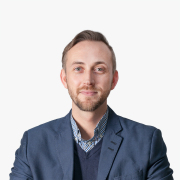 Krzysztof Izdebski – Board Member and Policy Director of Fundacja ePaństwo (EPF). Lawyer specialized in access to public information and re-use of public sector information. Author of publications on freedom of information, conflicts of interest, corruption and civic control. His expertise covers not only Poland but also other EU and non-EU countries.
Krzysztof Izdebski – Board Member and Policy Director of Fundacja ePaństwo (EPF). Lawyer specialized in access to public information and re-use of public sector information. Author of publications on freedom of information, conflicts of interest, corruption and civic control. His expertise covers not only Poland but also other EU and non-EU countries.
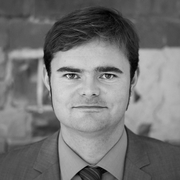 Till Jaeger – Certified Copyright and Media Law Attorney and a partner at JBB Rechtsanwaelte. Co-founder of the Institute for Legal Aspects of Free & Open Source Software (ifrOSS). Till represented the gpl-violations.org project in several lawsuits to enforce the GPL and was a member of the Committee C in the GPLv3 drafting. Co-author: Open Source Software – Rechtliche Rahmenbedingungen der Freien Software, 4th ed. Munich 2016.
Till Jaeger – Certified Copyright and Media Law Attorney and a partner at JBB Rechtsanwaelte. Co-founder of the Institute for Legal Aspects of Free & Open Source Software (ifrOSS). Till represented the gpl-violations.org project in several lawsuits to enforce the GPL and was a member of the Committee C in the GPLv3 drafting. Co-author: Open Source Software – Rechtliche Rahmenbedingungen der Freien Software, 4th ed. Munich 2016.
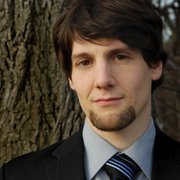 Matthias Kirschner – president of FSFE. He believes that software is deeply involved in all aspects of our lives and that its technology has to empower society not restrict it. He helps other organisations, companies and governments to understand how they can benefit from Free Software and how the idea of Free Software help to support freedom of speech, freedom of press or privacy. Matthias loves playing with his son, and in his spare time assists in wilderness first aid seminars, enjoys comics like XKCD and Transmetropolitan; Monty Python and Die Ärzte.
Matthias Kirschner – president of FSFE. He believes that software is deeply involved in all aspects of our lives and that its technology has to empower society not restrict it. He helps other organisations, companies and governments to understand how they can benefit from Free Software and how the idea of Free Software help to support freedom of speech, freedom of press or privacy. Matthias loves playing with his son, and in his spare time assists in wilderness first aid seminars, enjoys comics like XKCD and Transmetropolitan; Monty Python and Die Ärzte.
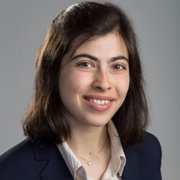 Nevena Kostova – PhD in law (University of Edinburgh, 2017). She researched creators’ organisations as participants and shapers of copyright policy (funded by CREATe, the RCUK Centre for Copyright and New Business Models in the Creative Economy). Nevena previously taught on the eLLM IP Law Programme and co-convened an IP, IT and Media Law Discussion Group at Edinburgh Law School. Nevena is particularly interested in exploring how the copyright framework should be shaped in response to developments in technology that alter the way content is created, disseminated, and consumed.
Nevena Kostova – PhD in law (University of Edinburgh, 2017). She researched creators’ organisations as participants and shapers of copyright policy (funded by CREATe, the RCUK Centre for Copyright and New Business Models in the Creative Economy). Nevena previously taught on the eLLM IP Law Programme and co-convened an IP, IT and Media Law Discussion Group at Edinburgh Law School. Nevena is particularly interested in exploring how the copyright framework should be shaped in response to developments in technology that alter the way content is created, disseminated, and consumed.
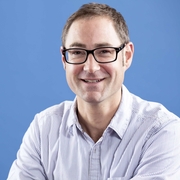 Jan Kottmann – responsible for media policy at Google Germany since February 2010. After studying law in Trier, London, Bonn and Edinburgh, he worked for RTL Television and the Media Group RTL Germany from 2002 to 2008. There he was last responsible as deputy head of media policy for the area of political communication and media law. In his current position as Head of Media Policy, he looks after the topics of digital culture, copyright, content regulation and media policy for the DACH area.
Jan Kottmann – responsible for media policy at Google Germany since February 2010. After studying law in Trier, London, Bonn and Edinburgh, he worked for RTL Television and the Media Group RTL Germany from 2002 to 2008. There he was last responsible as deputy head of media policy for the area of political communication and media law. In his current position as Head of Media Policy, he looks after the topics of digital culture, copyright, content regulation and media policy for the DACH area.
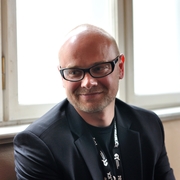 Till Kreutzer – lawyer (attorney-at-law), legal scholar (PhD) and writer. He is co–founder and publisher of iRights.info, a non-profit information portal on copyright in the digital world for consumers and creators, awarded – inter alia – with the Grimme-Online-Award 2006. He is also an entrepreneur and founder and managing partner of the iRights.Lab, an independent think tank on strategies for the digital world and the law firm iRights.Law. (photo: Jana Pofalla)
Till Kreutzer – lawyer (attorney-at-law), legal scholar (PhD) and writer. He is co–founder and publisher of iRights.info, a non-profit information portal on copyright in the digital world for consumers and creators, awarded – inter alia – with the Grimme-Online-Award 2006. He is also an entrepreneur and founder and managing partner of the iRights.Lab, an independent think tank on strategies for the digital world and the law firm iRights.Law. (photo: Jana Pofalla)
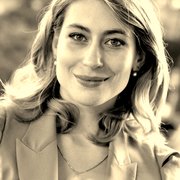 Anna Kruszewska – legal counsel. She has gained professional experience in prestigious Polish and international law firms such as London based Schillings, which deals with image protection of word-famous stars and international corporations. She is an adept at personal rights protection of high profile individuals in terms of legal advice and litigation.
Anna Kruszewska – legal counsel. She has gained professional experience in prestigious Polish and international law firms such as London based Schillings, which deals with image protection of word-famous stars and international corporations. She is an adept at personal rights protection of high profile individuals in terms of legal advice and litigation.
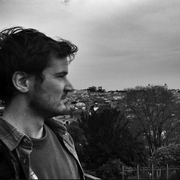 Danny Lämmerhirt – a researcher focussing on the politics of data, evidence-informed politics, the role of information for governance, as well as the social effects of quantification. Currently Danny is coordinating the research of Open Knowledge International – including to lead on the methodology development of the Global Open Data Index and developing research methods to explore data use. Prior to that Danny worked as research assistant with the Fraunhofer Society and the University of Amsterdam, and was a journalist and editor for several media outlets in Stuttgart, Germany.
Danny Lämmerhirt – a researcher focussing on the politics of data, evidence-informed politics, the role of information for governance, as well as the social effects of quantification. Currently Danny is coordinating the research of Open Knowledge International – including to lead on the methodology development of the Global Open Data Index and developing research methods to explore data use. Prior to that Danny worked as research assistant with the Fraunhofer Society and the University of Amsterdam, and was a journalist and editor for several media outlets in Stuttgart, Germany.
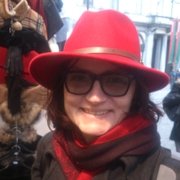 Eva Lepik – Estonian semiotician, Wikimedian and activist of free culture. Board member of Wikimedia Eesti, vice-chair of Estonian Semiotics Association, librarian at the Thomas A. Sebeok library in University of Tartu. A member of the team running the campaign for bringing full Freedom of Panorama to Estonia. For temporary escapades from copyright, Eva participates in historical dance ensemble Saltatriculi and gypsy dance ensemble Maljarka (photo: Raul Veede, CC-BY-SA).
Eva Lepik – Estonian semiotician, Wikimedian and activist of free culture. Board member of Wikimedia Eesti, vice-chair of Estonian Semiotics Association, librarian at the Thomas A. Sebeok library in University of Tartu. A member of the team running the campaign for bringing full Freedom of Panorama to Estonia. For temporary escapades from copyright, Eva participates in historical dance ensemble Saltatriculi and gypsy dance ensemble Maljarka (photo: Raul Veede, CC-BY-SA).
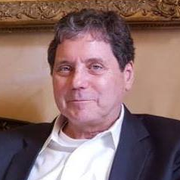 James Love – Director of Knowledge Ecology International. His work focuses on the production, management and access to knowledge resources as well as aspects of competition policy. This includes work on the financing of R&D, intellectual property rights, prices for and access to new medical technologies, as well as related topics for other knowledge goods including software, other copyrighted works, and data. He is working on proposals to expand the production of knowledge as a public good.
James Love – Director of Knowledge Ecology International. His work focuses on the production, management and access to knowledge resources as well as aspects of competition policy. This includes work on the financing of R&D, intellectual property rights, prices for and access to new medical technologies, as well as related topics for other knowledge goods including software, other copyrighted works, and data. He is working on proposals to expand the production of knowledge as a public good.
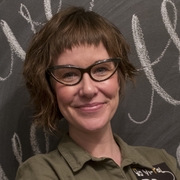 Raegan MacDonald – Senior EU Policy Manager, Mozilla. Originally from Canada, Raegan lives in Brussels, where she leads Mozilla’s Public Policy work in the EU, covering issues such as copyright, privacy, data protection, and net neutrality. Prior to joining Mozilla, Raegan established and led Access Now’s Brussels office. Prior to that, she worked with European Digital Rights (EDRi), an association civil and human rights groups from across Europe. Raegan is a graduate of the University of Vienna and the University of Leipzig where she received her Masters in Global Studies.
Raegan MacDonald – Senior EU Policy Manager, Mozilla. Originally from Canada, Raegan lives in Brussels, where she leads Mozilla’s Public Policy work in the EU, covering issues such as copyright, privacy, data protection, and net neutrality. Prior to joining Mozilla, Raegan established and led Access Now’s Brussels office. Prior to that, she worked with European Digital Rights (EDRi), an association civil and human rights groups from across Europe. Raegan is a graduate of the University of Vienna and the University of Leipzig where she received her Masters in Global Studies.
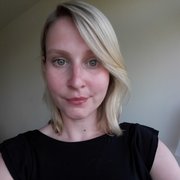 Polina Malaja – Policy Analyst and the Legal Coordinator at the Free Software Foundation Europe (FSFE). Holding LL.M in International Human Rights Law and Intellectual Property Rights Law, she is deeply interested in interactions between fundamental rights and freedoms and technology in the digital age. At the FSFE she is responsible for Free Software advocacy work on the EU level: including advocating for Open Standards, fair competition, and a level playing field for Free Software. In addition to that, she is leading the FSFE Legal Team and coordinating the biggest network of legal experts in Free Software: the Legal Network.
Polina Malaja – Policy Analyst and the Legal Coordinator at the Free Software Foundation Europe (FSFE). Holding LL.M in International Human Rights Law and Intellectual Property Rights Law, she is deeply interested in interactions between fundamental rights and freedoms and technology in the digital age. At the FSFE she is responsible for Free Software advocacy work on the EU level: including advocating for Open Standards, fair competition, and a level playing field for Free Software. In addition to that, she is leading the FSFE Legal Team and coordinating the biggest network of legal experts in Free Software: the Legal Network.
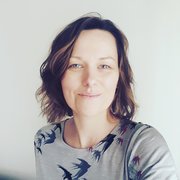 Anna Mazgal is a director for strategy and development at Centrum Cyfrowe, a Polish think-and-do-tank that is turning society digital. She is interested in the change technology brings to human behavior, policymaking, and law. As the President of COMMUNIA Association for Public Domain she is frequently in Brussels advocating for user-friendly shape of the ongoing copyright reform.
Anna Mazgal is a director for strategy and development at Centrum Cyfrowe, a Polish think-and-do-tank that is turning society digital. She is interested in the change technology brings to human behavior, policymaking, and law. As the President of COMMUNIA Association for Public Domain she is frequently in Brussels advocating for user-friendly shape of the ongoing copyright reform.
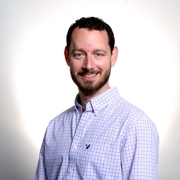 Ryan Merkley – experienced non-profit leader, advocate, and campaigner for openness and collaboration. As CEO of Creative Commons, Ryan has driven the organization’s focus towards a vibrant, usable commons powered by collaboration and gratitude. This has led to a renewed global movement, and significant growth in CC’s impact and reach, celebrating 1.2 billion licensed works in 2016. Read the 2016 State of the Commons report. Twitter: https://twitter.com/ryanmerkley Linkedin: https://ca.linkedin.com/in/ryanmerkley (photo: Sebastiaan ter Burg, CC-BY)
Ryan Merkley – experienced non-profit leader, advocate, and campaigner for openness and collaboration. As CEO of Creative Commons, Ryan has driven the organization’s focus towards a vibrant, usable commons powered by collaboration and gratitude. This has led to a renewed global movement, and significant growth in CC’s impact and reach, celebrating 1.2 billion licensed works in 2016. Read the 2016 State of the Commons report. Twitter: https://twitter.com/ryanmerkley Linkedin: https://ca.linkedin.com/in/ryanmerkley (photo: Sebastiaan ter Burg, CC-BY)
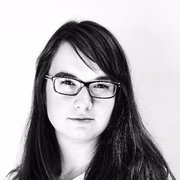 Natalia Mileszyk – lawyer and public policy expert dealing with digital rights, copyright reform and openness. She works for Centrum Cyfrowe, a leading Polish think-and-do-tank researching focused on the digital leap that society is making due to the robust development of technology. She is also active in Communia Association for Public Domain and Creative Commons Poland. For the last two years she has been actively involved in copyright reform advocacy at the European level. @nmileszyk
Natalia Mileszyk – lawyer and public policy expert dealing with digital rights, copyright reform and openness. She works for Centrum Cyfrowe, a leading Polish think-and-do-tank researching focused on the digital leap that society is making due to the robust development of technology. She is also active in Communia Association for Public Domain and Creative Commons Poland. For the last two years she has been actively involved in copyright reform advocacy at the European level. @nmileszyk
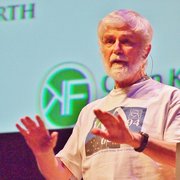
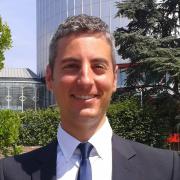 Diego Naranjo – Senior Policy Advisor at EDRi since 2014. Advocates for the protection of citizens’ fundamental rights and freedoms online in the fields of data protection, surveillance and copyright. Member of the expert group on digital rights created by the Spanish Ministry of Energy, Tourism and Digital Agenda. Co-author of the Council of Europe’s Study DGI31 Human Rights Violations Online, prepared by EDRi. Twitter: @DNBSevilla
Diego Naranjo – Senior Policy Advisor at EDRi since 2014. Advocates for the protection of citizens’ fundamental rights and freedoms online in the fields of data protection, surveillance and copyright. Member of the expert group on digital rights created by the Spanish Ministry of Energy, Tourism and Digital Agenda. Co-author of the Council of Europe’s Study DGI31 Human Rights Violations Online, prepared by EDRi. Twitter: @DNBSevilla
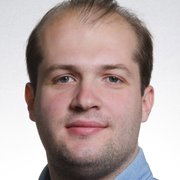 Maksym Naumko – the Legal Lead of Creative Commons Ukraine, he is also working as legal advisor for software corporation ABBYY. He graduated as Master of Law from the National Technical University of Ukraine „Kyiv Polytechnic Institute” and then obtained Master degree in IP from the Institute of Intellectual Property of Odessa Law Academy. Maksym is interested in all issues of intellectual property in digital space.
Maksym Naumko – the Legal Lead of Creative Commons Ukraine, he is also working as legal advisor for software corporation ABBYY. He graduated as Master of Law from the National Technical University of Ukraine „Kyiv Polytechnic Institute” and then obtained Master degree in IP from the Institute of Intellectual Property of Odessa Law Academy. Maksym is interested in all issues of intellectual property in digital space.
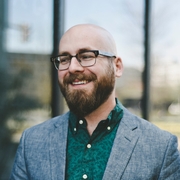 Aaron Perzanowski – Professor of Law at Case Western Reserve University School of Law, where he teaches courses in intellectual property, telecommunications, and innovation. He previously served as the Microsoft Research Fellow at the Berkeley Center for Law & Technology. His research addresses topics ranging from digital copyright to deceptive advertising to creative norms within the tattoo industry. He is the author of The End of Ownership: Personal Property in the Digital Economy (MIT Press 2016) and Creativity Without Law (NYU Press 2017) (with Kate Darling).
Aaron Perzanowski – Professor of Law at Case Western Reserve University School of Law, where he teaches courses in intellectual property, telecommunications, and innovation. He previously served as the Microsoft Research Fellow at the Berkeley Center for Law & Technology. His research addresses topics ranging from digital copyright to deceptive advertising to creative norms within the tattoo industry. He is the author of The End of Ownership: Personal Property in the Digital Economy (MIT Press 2016) and Creativity Without Law (NYU Press 2017) (with Kate Darling).
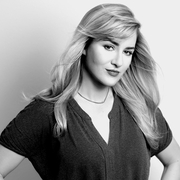 Magdalena Płonka – designer (Academy of Art Łódź), lecturer in CSR in design (MSKPU). Considered one of the most influential women in Poland (PANI magazine, 1999). Author: „Ethics in Fashion – CSR in textile industry” and other publications for PAH and Polska Zielona Sieć. Member of Business Ethics Advisory Committee at the Ministry of Development. Expert witness (fashion design and costumology). Doctoral candidate at IADE Creative University in Lisbon (http://www.ethicsinfashion.com)
Magdalena Płonka – designer (Academy of Art Łódź), lecturer in CSR in design (MSKPU). Considered one of the most influential women in Poland (PANI magazine, 1999). Author: „Ethics in Fashion – CSR in textile industry” and other publications for PAH and Polska Zielona Sieć. Member of Business Ethics Advisory Committee at the Ministry of Development. Expert witness (fashion design and costumology). Doctoral candidate at IADE Creative University in Lisbon (http://www.ethicsinfashion.com)
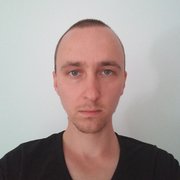 Piotr Płucienniczak – artist, member of the Rozdzielczość Chleba art collective, political activist, independent social researcher, occasionally translator and programmer. Edited „Marsz na ROM” (2012), „Glitch art is dead” (2016), „Nośnik #4” (2016) and „Firmy” (2017) as a member of Rozdzielczość Chleba, he was also an executive director of the ZUSwave project. Author of articles published in „Bez Dogmatu”, „Dwutygodnik”, „emecon”, „Ha!art”, „Kultura i Społeczeństwo”, „Studia Socjologiczne” and some other places.
Piotr Płucienniczak – artist, member of the Rozdzielczość Chleba art collective, political activist, independent social researcher, occasionally translator and programmer. Edited „Marsz na ROM” (2012), „Glitch art is dead” (2016), „Nośnik #4” (2016) and „Firmy” (2017) as a member of Rozdzielczość Chleba, he was also an executive director of the ZUSwave project. Author of articles published in „Bez Dogmatu”, „Dwutygodnik”, „emecon”, „Ha!art”, „Kultura i Społeczeństwo”, „Studia Socjologiczne” and some other places.
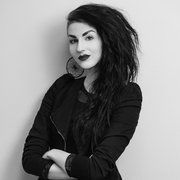 Joanna Porayska – second-year student at International School of Costume and Fashion Design and CKP Warsaw, where she studies clothing design. She is as well one of the scribers at FashionBiznes.pl, ocassionaly writes for Magazyn.Allegro.pl and Kobieta.Gazeta.pl. Joanna is strongly into digital painting and computer graphics. In her free time she creates alternative clothing.
Joanna Porayska – second-year student at International School of Costume and Fashion Design and CKP Warsaw, where she studies clothing design. She is as well one of the scribers at FashionBiznes.pl, ocassionaly writes for Magazyn.Allegro.pl and Kobieta.Gazeta.pl. Joanna is strongly into digital painting and computer graphics. In her free time she creates alternative clothing.
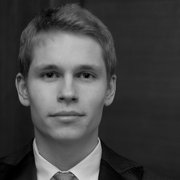 Marek Porzeżyński – PhD in Law, founder and director of Future Institute – Instytut Badań nad Prawnymi Aspektami Nowych Technologii. Lawyer at WKB, a scholar at the University Cardinal Stefan Wyszyński (Faculty of Law and Administration). Student of the Applied Computer Science at the Warsaw University of Technology (Faculty of Electrical Engineering). Specialized in the civil law, the new technologies law, especially in protection of intellectual property, media and advertising.
Marek Porzeżyński – PhD in Law, founder and director of Future Institute – Instytut Badań nad Prawnymi Aspektami Nowych Technologii. Lawyer at WKB, a scholar at the University Cardinal Stefan Wyszyński (Faculty of Law and Administration). Student of the Applied Computer Science at the Warsaw University of Technology (Faculty of Electrical Engineering). Specialized in the civil law, the new technologies law, especially in protection of intellectual property, media and advertising.
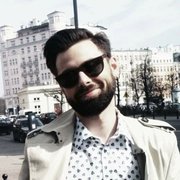 Radosław Radwan – lawyer and advocate trainee from Warsaw by day, gamer and pop-culture geek by night. Graduated law from Jagiellonian University and post-graduate studies in the field of IP law at University of Warsaw. His current practice revolves around copyright-related issues concerning new technologies and copyright levies. Besides interests related to his practice, he is interested in copyright history and theory of authorship which was a subject of his paper published in major Polish journal.
Radosław Radwan – lawyer and advocate trainee from Warsaw by day, gamer and pop-culture geek by night. Graduated law from Jagiellonian University and post-graduate studies in the field of IP law at University of Warsaw. His current practice revolves around copyright-related issues concerning new technologies and copyright levies. Besides interests related to his practice, he is interested in copyright history and theory of authorship which was a subject of his paper published in major Polish journal.
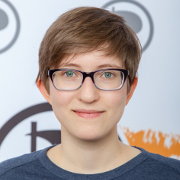 Julia Reda -a representative of the Pirate Party, a worldwide movement supporting the usage of technology for empowerment. As member of the European Parliament, she advocates a European copyright adapted to the digital era – easily understandable, enabling the free exchange of culture and knowledge across borders. Julia holds an M.A. in political science and communications science from Johannes-Gutenberg-University Mainz, Germany.
Julia Reda -a representative of the Pirate Party, a worldwide movement supporting the usage of technology for empowerment. As member of the European Parliament, she advocates a European copyright adapted to the digital era – easily understandable, enabling the free exchange of culture and knowledge across borders. Julia holds an M.A. in political science and communications science from Johannes-Gutenberg-University Mainz, Germany.
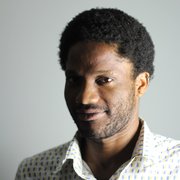 Antonio Roberts – New Media artist and Curator based in Birmingham, UK. He uses glitch art, hacking and technology-driven processes to explore issues surrounding free culture and authorship. He has exhibited at galleries including Furtherfield Gallery, Tate Britain, the Ukrainian Institute of Modern Art, Birmingham Open Media, University of Birmingham, and Jerwood Space. He has curated exhibitions including Bring Your Own Beamer, µChip 3, Stealth, and No Copyright Infringement Intended.
Antonio Roberts – New Media artist and Curator based in Birmingham, UK. He uses glitch art, hacking and technology-driven processes to explore issues surrounding free culture and authorship. He has exhibited at galleries including Furtherfield Gallery, Tate Britain, the Ukrainian Institute of Modern Art, Birmingham Open Media, University of Birmingham, and Jerwood Space. He has curated exhibitions including Bring Your Own Beamer, µChip 3, Stealth, and No Copyright Infringement Intended.
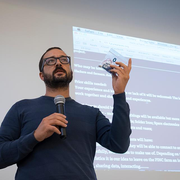 André Rocha – Senior Product and Interaction designer (Founder at EVOL/LEVO), Professor at ESELx – IPL and ESAD.cr, Technical Lead on the Creative Commons Portugal team and founder at DAR – an Open Design and Culture Non-profit. He is currently enrolled in the UT Austin | Portugal Digital Media PhD program where he is researching about Open Agriculture through the design of a new medium (GROUU) which is aimed at Open Agriculture Knowledge Generation and Transfer. In the end of 2016 he started the FarmLabs Initiative through which he also develops his Research. (Photo: Luís Barbosa | FUTUREPLACES 2015)
André Rocha – Senior Product and Interaction designer (Founder at EVOL/LEVO), Professor at ESELx – IPL and ESAD.cr, Technical Lead on the Creative Commons Portugal team and founder at DAR – an Open Design and Culture Non-profit. He is currently enrolled in the UT Austin | Portugal Digital Media PhD program where he is researching about Open Agriculture through the design of a new medium (GROUU) which is aimed at Open Agriculture Knowledge Generation and Transfer. In the end of 2016 he started the FarmLabs Initiative through which he also develops his Research. (Photo: Luís Barbosa | FUTUREPLACES 2015)
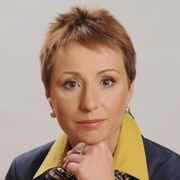 Krisztina Rozgonyi – senior media, telecommunication and IP regulatory and legal/policy consultant. Assistant Professor with the Media Governance and Media Industries Research Lab (University of Vienna). She works with e.g., ITU/UN, Council of Europe, European Commission, World Bank InfoDev and BBC MA as senior adviser on media freedom, spectrum policy and copyright legal frameworks re: digital audiovisual archives. She holds a doctoral degree in Law and State Sciences and an MA in Communication Sciences (Eötvös Lóránd University, Budapest), as well as an MBA (CEU).
Krisztina Rozgonyi – senior media, telecommunication and IP regulatory and legal/policy consultant. Assistant Professor with the Media Governance and Media Industries Research Lab (University of Vienna). She works with e.g., ITU/UN, Council of Europe, European Commission, World Bank InfoDev and BBC MA as senior adviser on media freedom, spectrum policy and copyright legal frameworks re: digital audiovisual archives. She holds a doctoral degree in Law and State Sciences and an MA in Communication Sciences (Eötvös Lóránd University, Budapest), as well as an MBA (CEU).
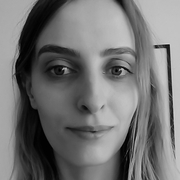 Agnieszka Serlikowska – legal advisor, University of Warsaw graduate, author of publication related to Internet copyright infringement. Participant of many IP courses, WIPO’s Advanced Course on Trademarks, Industrial Designs and Geographical Indications included. Since 2012 she works in public administration office oriented towards i.a. food quality regulations.
Agnieszka Serlikowska – legal advisor, University of Warsaw graduate, author of publication related to Internet copyright infringement. Participant of many IP courses, WIPO’s Advanced Course on Trademarks, Industrial Designs and Geographical Indications included. Since 2012 she works in public administration office oriented towards i.a. food quality regulations.
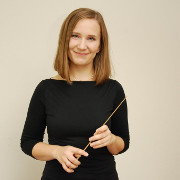 Aleksandra Sewerynik – lawyer, choral conductor. Her blog prawomuzyki.pl helps musicians and lawyers to understand the copyright.
Aleksandra Sewerynik – lawyer, choral conductor. Her blog prawomuzyki.pl helps musicians and lawyers to understand the copyright.
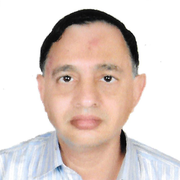 Krishna Ravi Srinivas – STI Program affiliate at Research Information System for Developing Countries (RIS), New Delhi. He has been a visiting scholar at University of Pennsylvania on a Fulbright Fellowship, He has published extensively on intellectual property rights, climate change and technology transfer, open source innovation and traditional knowledge. He has been/is part of research projects funded by the EC, ERC, FAO and UNESCO. http://ris.academia.edu/KrishnaRaviSrinivas, http://papers.ssrn.com/sol3/cf_dev/AbsByAuth.cfm?per_id=290086
Krishna Ravi Srinivas – STI Program affiliate at Research Information System for Developing Countries (RIS), New Delhi. He has been a visiting scholar at University of Pennsylvania on a Fulbright Fellowship, He has published extensively on intellectual property rights, climate change and technology transfer, open source innovation and traditional knowledge. He has been/is part of research projects funded by the EC, ERC, FAO and UNESCO. http://ris.academia.edu/KrishnaRaviSrinivas, http://papers.ssrn.com/sol3/cf_dev/AbsByAuth.cfm?per_id=290086
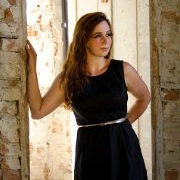 Lucie Straková – copyright and ICT lawyer, currently pursuing her Ph.D at Masaryk university in Brno, Czech Republic. Lucie focuses on relationship between collective management schemes and modern technologies. She cooperates with Technology Transfer Office at Masaryk University and University of Pardubice, and with Ministry of Education as a lawyer. She is a lecturer at Masaryk University, a co-Legal Lead of Creative Commons Czech Republic, and CEO of non-profit organization Open Content.
Lucie Straková – copyright and ICT lawyer, currently pursuing her Ph.D at Masaryk university in Brno, Czech Republic. Lucie focuses on relationship between collective management schemes and modern technologies. She cooperates with Technology Transfer Office at Masaryk University and University of Pardubice, and with Ministry of Education as a lawyer. She is a lecturer at Masaryk University, a co-Legal Lead of Creative Commons Czech Republic, and CEO of non-profit organization Open Content.
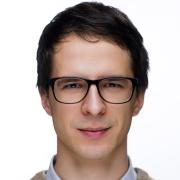 Dániel G. Szabó – a lawyer with journalism background focusing on freedom of expression and information. He did his LL.M. at Central European University in Comparative Constitutional Law. With a journalism background from the leading Hungarian online news portal, he understands the practical aspects of free speech issues. Currently he is a legal officer at the Hungarian Helsinki Committee. He is also active in an NGO-based journalism project called Transparent Education where he provides legal support for journalists in freedom of information requests and other free speech issues.
Dániel G. Szabó – a lawyer with journalism background focusing on freedom of expression and information. He did his LL.M. at Central European University in Comparative Constitutional Law. With a journalism background from the leading Hungarian online news portal, he understands the practical aspects of free speech issues. Currently he is a legal officer at the Hungarian Helsinki Committee. He is also active in an NGO-based journalism project called Transparent Education where he provides legal support for journalists in freedom of information requests and other free speech issues.
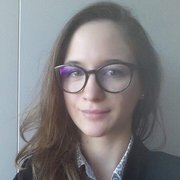 Flóra Márta Szigeti – public international law PhD student at Eötvös Lorand University in Budapest. Flóra earned a degree both in law and design and art theory. After two years of practical experience in a patent infringement litigation team, she became a legal advisor in the Hungarian Ministry of Justice in the field of intellectual propery, as also followed the Digital Single Market copyright legislation for five months at the Cabinet of Commissioner Navracsics. Flóra’s research concerns the intersection of foreign policy and the challenges of policies concerning digital reality.
Flóra Márta Szigeti – public international law PhD student at Eötvös Lorand University in Budapest. Flóra earned a degree both in law and design and art theory. After two years of practical experience in a patent infringement litigation team, she became a legal advisor in the Hungarian Ministry of Justice in the field of intellectual propery, as also followed the Digital Single Market copyright legislation for five months at the Cabinet of Commissioner Navracsics. Flóra’s research concerns the intersection of foreign policy and the challenges of policies concerning digital reality.
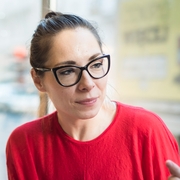 Katarzyna Szymielewicz – lawyer specialised in human rights and technology. Co-founder and president of Panoptykon Foundation – a Polish NGO defending human rights in the context of contemporary forms of surveillance. Vice-president of European Digital Rights – a coalition of 33 privacy and civil rights organisations. Board member of Tactical Technology Collective and Amnesty International (Poland). Graduate of the University of Warsaw (Law) and the School of Oriental and African Studies (Development Studies). A member of Ashoka – international network of social entrepreneurs.
Katarzyna Szymielewicz – lawyer specialised in human rights and technology. Co-founder and president of Panoptykon Foundation – a Polish NGO defending human rights in the context of contemporary forms of surveillance. Vice-president of European Digital Rights – a coalition of 33 privacy and civil rights organisations. Board member of Tactical Technology Collective and Amnesty International (Poland). Graduate of the University of Warsaw (Law) and the School of Oriental and African Studies (Development Studies). A member of Ashoka – international network of social entrepreneurs.
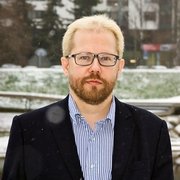 Raul Veede – Wikipedian and an administrator in Estonian Wikipedia since 2004. Communication expert, Wikievangelist, and Chief Philosophical Officer at Blue Ant. A member of the Freedom of Panorama team in Estonia. In free time, translates British 18th-century philosophy and dances Argentine tango.
Raul Veede – Wikipedian and an administrator in Estonian Wikipedia since 2004. Communication expert, Wikievangelist, and Chief Philosophical Officer at Blue Ant. A member of the Freedom of Panorama team in Estonia. In free time, translates British 18th-century philosophy and dances Argentine tango.
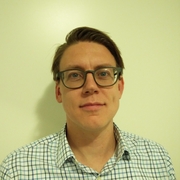 Sander van der Waal – Head of Network and Partnerships at Open Knowledge International, overseeing the Capacity Team, which includes the areas of Research, Communications, Community and OKFestival. Sander has been with the OKI since the end of 2012, working on topics ranging from Open Education to School of Data. With an MSc (and BSc) in Computer Science, has a long record in software development. Before joining OKI, Sander also advised the higher education sector in the UK on open source software development.
Sander van der Waal – Head of Network and Partnerships at Open Knowledge International, overseeing the Capacity Team, which includes the areas of Research, Communications, Community and OKFestival. Sander has been with the OKI since the end of 2012, working on topics ranging from Open Education to School of Data. With an MSc (and BSc) in Computer Science, has a long record in software development. Before joining OKI, Sander also advised the higher education sector in the UK on open source software development.
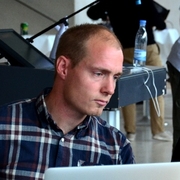 Jacob Wang – Coordinator of Digitization and Digital Initiatives at The National Museum of Denmark working in the field of digitization, data, knowledge and rights management, digital development and open access. Making the knowledge and collections of The National Museum of Denmark openly, freely and actively available to all is the core mission of his work. Jacob co-founded HACK4DK, an annual heritage hackathon held in Copenhagen since 2012 and has been heavily involved in developing historiskatlas.dk – Denmark’s largest ongoing digital collaboration between 150+ danish archives, libraries and museums.
Jacob Wang – Coordinator of Digitization and Digital Initiatives at The National Museum of Denmark working in the field of digitization, data, knowledge and rights management, digital development and open access. Making the knowledge and collections of The National Museum of Denmark openly, freely and actively available to all is the core mission of his work. Jacob co-founded HACK4DK, an annual heritage hackathon held in Copenhagen since 2012 and has been heavily involved in developing historiskatlas.dk – Denmark’s largest ongoing digital collaboration between 150+ danish archives, libraries and museums.
 Tomasz Zalewski – Partner at Wierzbowski Eversheds Sutherland law firm. He heads the Intellectual Property, E-business and Public Procurement teams. The founder and co-author of two special-interest blogs devoted to issues of public procurement (eurozamowienia.pl) and copyright and ebusiness (IPwsieci.pl). Founder of LegalTech Polska – a platform of exchanging knowledge related to tech in law and law in tech.
Tomasz Zalewski – Partner at Wierzbowski Eversheds Sutherland law firm. He heads the Intellectual Property, E-business and Public Procurement teams. The founder and co-author of two special-interest blogs devoted to issues of public procurement (eurozamowienia.pl) and copyright and ebusiness (IPwsieci.pl). Founder of LegalTech Polska – a platform of exchanging knowledge related to tech in law and law in tech.
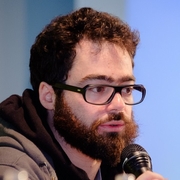 Jérémie Zimmermann – co-founder of Hacking with Care, aiming at bringing care for hackers-activists and Hackers ethics and tools for caregivers. Co-founder (and coordinator/spokesperson/campaigner for 7 years until 2014) of La Quadrature du Net, defending freedoms online, in France and in the EU.(photo: Heinrich-Böll-Stiftung@flickr, CC-BY-SA).
Jérémie Zimmermann – co-founder of Hacking with Care, aiming at bringing care for hackers-activists and Hackers ethics and tools for caregivers. Co-founder (and coordinator/spokesperson/campaigner for 7 years until 2014) of La Quadrature du Net, defending freedoms online, in France and in the EU.(photo: Heinrich-Böll-Stiftung@flickr, CC-BY-SA).
